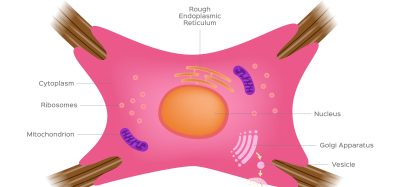Targeting PLA2G15 to treat neurometabolic disorders
Posted: 20 May 2025 | Drug Target Review | No comments yet
Scenic Biotech and Stanford University have published a study identifying PLA2G15 as a new drug target in neurodegenerative and metabolic diseases, potentially enabling future treatments for conditions like Niemann-Pick type C.


Scenic Biotech has announced a major scientific breakthrough with the publication of a new study in Nature, showcasing the discovery of PLA2G15 as a promising therapeutic target. In collaboration with Dr Monther Abu-Remaileh’s team at Stanford University, the research shows that PLA2G15, a lysosomal phospholipase, plays a central role in modulating bis(monoacylglycerol)phosphate (BMP), a lipid implicated in a range of neurodegenerative and metabolic disorders.
A new approach to tackling Niemann-Pick Type C and related disorders
The study demonstrated that inhibiting PLA2G15 significantly hinders disease progression in animal models of Niemann-Pick type C (NPC), a rare lysosomal storage disease often referred to as juvenile Alzheimer’s. By blocking this enzyme, BMP levels were restored, which improved lysosomal function and reduced the neurological, hepatic and splenic symptoms of the disease.
These findings offer a potential disease-modifying strategy not only for NPC but also for other neurometabolic disorders such as Batten disease and Frontotemporal Lobar Degeneration (FTLD), which all lack effective treatments.
Automation now plays a central role in discovery. From self-driving laboratories to real-time bioprocessing
This report explores how data-driven systems improve reproducibility, speed decisions and make scale achievable across research and development.
Inside the report:
- Advance discovery through miniaturised, high-throughput and animal-free systems
- Integrate AI, robotics and analytics to speed decision-making
- Streamline cell therapy and bioprocess QC for scale and compliance
- And more!
This report unlocks perspectives that show how automation is changing the scale and quality of discovery. The result is faster insight, stronger data and better science – access your free copy today
Scientific validation of Scenic biotech’s modifier platform
According to Dr Vincent Blomen, Senior Director of Discovery Sciences at Scenic Biotech, the Nature publication is a significant validation of the company’s modifier therapy platform, which leverages human haploid cells to uncover novel drug targets.
“The publication in Nature is both a validation and a demonstration of the power of our platform that uses human haploid cells to discover disease-relevant targets in various therapeutic areas including our focus areas of neuro- and metabolic diseases,” said Blomen. “We demonstrate that targeting PLA2G15 improves neurodegeneration, spleen and liver damage, as well as neurological symptoms and survival in NPC mice. However, we believe this novel drug target has potential in the treatment of other neurodegenerative diseases beyond NPC that are still lacking disease-modifying therapies. With this in mind, we are developing our lead small-molecule inhibitor candidate and are advancing towards IND-enabling studies and aim to proceed to first-in-human studies thereafter.”
PLA2G15: a breakthrough in BMP biology
“BMP plays an integral role in promoting lysosomal function including lipid degradation and cholesterol trafficking; however, little is known about BMP degradation,” said Dr Abu-Remaileh, Assistant Professor of Chemical Engineering and Genetics at Stanford University and co-author of the paper. “The data published in Nature highlight that inhibition of PLA2G15 boosts BMP levels in cells as well as in animal models. BMP is deregulated in a multitude of diseases and has long been thought to be resistant to degradation by lysosomal enzymes. We now show that PLA2G15 can hydrolyse BMP, and importantly, that inhibition of the enzyme presents a promising therapeutic approach.”
The data published in Nature highlight that inhibition of PLA2G15 boosts BMP levels in cells as well as in animal models.
The study challenges previous assumptions about BMP being resistant to degradation and positions PLA2G15 as a central player in regulating lysosomal homeostasis.
Scenic Biotech is now moving its lead small-molecule PLA2G15 inhibitor through preclinical development, targeting a range of neurometabolic diseases. The company plans to initiate IND-enabling studies shortly, aiming to enter first-in-human trials soon.
Related topics
Biotherapeutics, Disease Research, Drug Development, Drug Discovery, Drug Discovery Processes, Molecular Targets, Neurosciences, Therapeutics, Translational Science
Related organisations
Scenic Biotech, Stanford University








